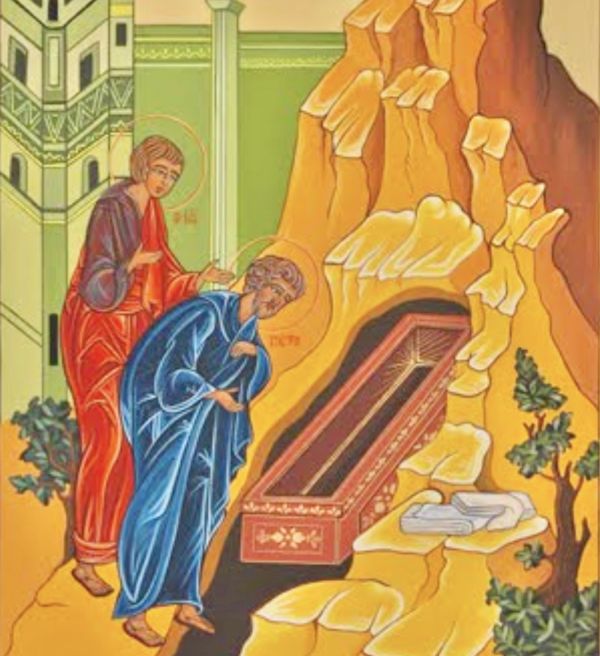In the context of Christmas, to remember St John the Apostle is to put contemplation of the Mystery first. He who, like a sack of myrrh on his breast, reclined his head on that of Christ and, because of the Love that animated him, arrived first at the tomb of his Friend.
"But the other disciple ran faster than Peter and reached the tomb first" (Jn 20:4).
Francis is the one who, out of the Love that inflamed him, was the first to run to the Crib; he was the first to see the signs and welcome them into his heart.
Without giving way to aleatory contemplation, the Poor Man of Assisi first, in Greccio, wanted to tangibly see the hardships, the hardships, the penury of the Lord from the very beginning of his human parable descending from Heaven.
The mysticism that informed him was the fruit of intimate union with Jesus, with the Child of Bethlehem.
The Sources remind us:
"Having by intimate prayer and frequent contemplation attained an extraordinary familiarity with God, he longed to know what of him and in him could be most pleasing to the eternal King" (FF 479).
Says Celano, his well-known biographer:
"He was not so much a praying man as he himself was transformed into living prayer" (FF 682).
Already... the same prayer, transferred into the spirit that had animated the living, palpitating representation of Greccio.
The Beauty that traverses the events narrated by the Sources gives us evidence of this:
"Above all solemnities, he celebrated the Christmas of the Child Jesus with ineffable solicitude and called the day on which God, made a little infant, had sucked at a human breast a feast of feasts [...].
This Name was as sweet to him as a honeycomb of honey in his mouth.
One day the friars were discussing together whether the obligation not to eat meat remained, since Christmas that year fell on a Friday.
Francis replied to Brother Morico:
"You sin, brother, in calling Friday the day on which the Child was born for us.
I want that on a day like this even the walls eat meat, and if this is not possible, at least be smeared with it'" (FF 787).
"He wanted the poor and beggars to be fed on this day by the rich, and oxen and donkeys to receive a larger ration of food and hay than usual.
"If I can speak to the emperor," he said, "I will beg him to issue a general edict, so that all those who are able, should scatter wheat and grain in the streets, so that on a day of such solemnity the birds and especially the larks may have plenty" (FF 788).
Love made Francis capable of going beyond the usual, and able to translate the novelty that crossed the boundaries of the already known.
Because Love arrives first, is in a hurry, brings with it sister solicitude and gives birth to the Unheard of.
"Now the two ran together, and the other disciple ran ahead sooner than Peter and came first to the tomb, and bending down he saw the linen cloths folded apart; yet he did not go in" (Jn 20:4-5).
Octave of Christmas, St. John ap. ev. (Jn 20:2-8)












